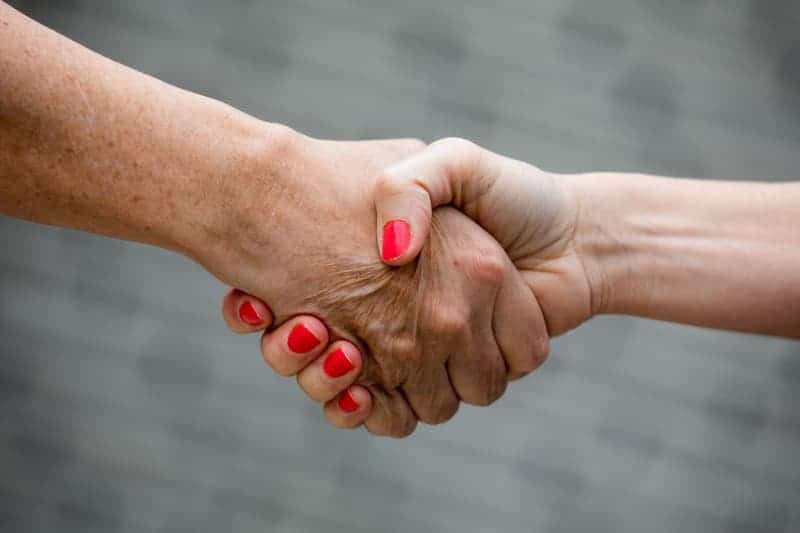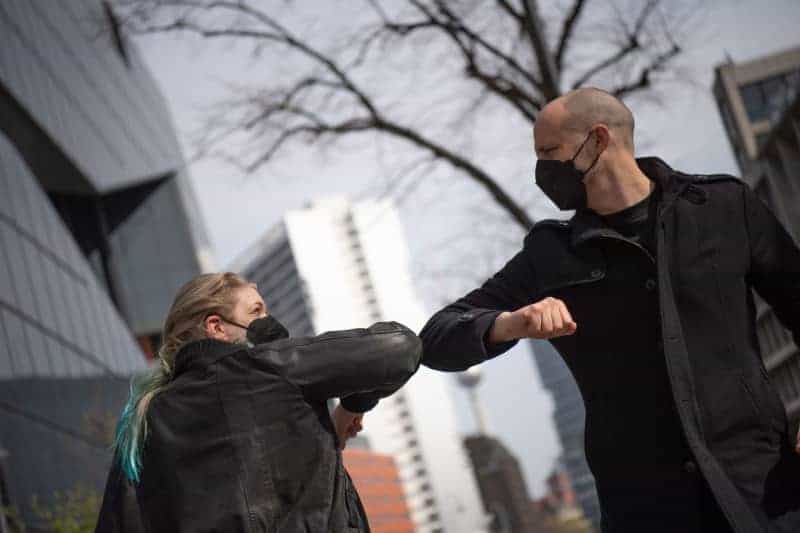
DPA

Sometimes they’re firm and other times rather limp, but mainly – after more than two years of the Covid-19 pandemic – they now feel oddly antiquated. In any case, handshakes are gradually making a comeback these days.
Many people are hesitant to resume the traditional greeting ritual though, worried it can put them at risk of infection with the novel coronavirus or other pathogens. Infectiologist Dr Peter Walger, from the German Society of Hospital Hygiene (DGKH), has answered some questions addressing such concerns.
How much of a health risk are handshakes?
Peter Walger: Infection with the coronavirus or other pathogens causing respiratory illness isn’t possible via your hands alone. But handshaking can contaminate them with secretions containing the viruses, and if the secretions are transmitted by your hands to mucous membranes in your mouth or nose, for example, you can become infected.
Your risk of infection via handshaking naturally depends on whether the other person has touched highly infectious secretions. This is the case, for example, if he or she was near someone ill and touched secretions expelled by that person’s coughs or sneezes.
So the risk of infection isn’t nil, but it’s low – at least compared with the risk via airborne respiratory droplets. This is particularly true in the warm months of summer, when fewer respiratory illnesses are transmitted.
Does handshaking bolster our immune system by exposing us to various germs?
Walger: All our lives we’re confronted with potential pathogens in our environment, so handshaking shouldn’t be overstated.
Many pathogens on our skin cause illness only when they enter the body in some way: via an injury, during an operation, or when we inhale them. Some viruses get into our nose and throat region via mucous membranes, where they lead to an infection.
The most advisable “training programme” for the immune system is a vaccination. Recovery from an infection contracted naturally would be the best protection, but at the price of illness.
The handshake is now returning in many places. How can we practice it as safely as possible, both for ourselves and others?
Walger: You should regularly wash your hands, of course. This is a general rule, irrespective of a specific pathogen. Not everyone follows it though, as can be seen in any public lavatory.
But handwashing is important, particularly after “critical situations” – for instance after touching a damp handkerchief or a railing that’s been touched by a lot of other people.
If you don’t have an opportunity to wash your hands, it will do to use hand sanitizer you carry around in a small bottle. But washing your hands is preferable to disinfecting them. And you shouldn’t touch your face with your hands. This is easier said than done, but you can train yourself to avoid it.



Recommended Comments
There are no comments to display.